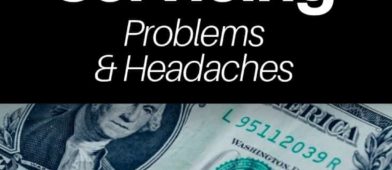We hear much about the size of student loans as a major problem. But right behind loan amounts are servicing problems. Once a student loan goes into repayment status, the graduate is left dealing with a matrix of rules and servicing problems.
Part of the issue is that federal student loans are serviced by a small number of very large servicing agencies. There seems to be little accountability, and it's not even clear the agencies themselves are fully aware of their mission and the regulations concerning student loans.
This can lead debtors into serious problems, and even credit issues, apart from the basic function making monthly payments or arranging payment plans. Debtors often turn to the servicing agencies themselves for solutions and get very little help. As one of the largest servicers of federal student loans, Great Lakes Student Servicing presents its own set of problems, though they're not necessarily unique in the federal loan servicing industry.
How can you fix and avoid common Great Lakes Student Loan Servicing problems? It might be comforting to say that there's some secret strategy for navigating the servicer labyrinth. But the truth is the best you can do in most cases is to simply find a way forward. The problem on the servicing side of federal student loans seems to be the servicers themselves.
That's a big picture problem that needs to be resolved at the national level. But that won't be much help if you're struggling with chronic servicing problems right now.
Let's see what we can offer in the meantime.
Who is Great Lakes Educational Loan Services?
Now a part of Nelnet, Great Lakes Higher Education Corporation was previously one of the four largest federal student loan servicing agencies in the US, with loans of over $51 billion to more than 10 million borrowers. It's now a fully owned subsidiary within the Nelnet organization. Great Lakes is a nonprofit corporation, headquartered in Madison Wisconsin. In combination with its parent company, it now services 42% of the total federal student loan debt in the US.
Prior to the consolidation with Nelnet, Great Lakes actually seemed to be one of the less troubled servicers.
Common Great Lakes Student Loan Servicing Problems
To determine common problems with Great Lakes Student Loan Servicing we checked several sources for recurring complaints.
The Consumer Financial Protection Bureau (CFPB), an agency of the US government, shows the following recurring complaints:
- Received bad information about your loan.
- Trouble with how payments are being handled.
- Can't decrease my monthly payments.
- Having problems with customer service.
Meanwhile, the Better Business Bureau, which does not rate Great Lakes, shows 193 complaints against the company. The most common include Problems with Product/Service, and Billing/Collection Issues. The last one seems consistent with the “trouble with how payments are being handled” category at the CFPB.
A sampling of the complaints – of the type most who are familiar with student loans can relate to – includes:
“I borrowed $41,487.00 from Great Lakes 5 years ago for a parent plus loan for my son to go to XXXXXXXX University…I have been paying all of this time and have paid almost $20,000.00 and they are telling me that I still owe $44,797.19. I was also told that with a monthly payment of almost $400.00 that I will be paying for this loan for 25 years and will pay almost $100,000.00 if I live that long.”
“This debt was 10 years ago. In April 2017 this entire student loan was PAID IN FULL including all interest and fees. As of today, 01/27/2019 almost 2 years later this is still showing on my credit report. It is causing my credit score to stay low. In addition I have been denied new credit more than 10 times because this false information still reflects on my credit report.”
“I was on an income driven repayment plan for the year of 2018 because I have over $100k in student loan debt and earn $30k-$35k per year. I was notified that my repayment plan expired in December 2018 and I would have to pay over $2k monthly as of 2019. So I filed for a forbearance for 2 weeks until my income driven repayment plan could be renewed. 2 weeks later, my repayment plan was renewed and I was charged $12,927.27 on January 1, 2019 as capitalized interest that was added to my principle balance because I took a 2 week forbearance.
I was never notified, told, or aware that I would be charged almost $13k in interest for a 2 week forbearance or for any reason at all. I called, and the rep was very cryptic and confusing. I kept asking for explanations as he talked in circles but he seemed confused too. I was never informed of any fees and I do not have access to past records to see if this has happened before.”
A quick review of several dozen complaints shows a consistent pattern of misapplied payments, unauthorized drafting of funds from personal accounts, Great Lakes personnel unable to explain company policy, mysterious increases in loan amounts due, misapplied payments, and credit reporting issues.
Strategies to Deal with Great Lakes Student Loan Serving Problems
There's no single strategy likely to be effective in dealing with Great Lakes. But below are several strategies you can try, either in succession or at the same time.
Get and review all relevant loan documentation. It's important that you fully understand your loan terms before making contact with Great Lakes. If the person you'll be speaking with has nothing more than a vague idea what's going on, you'll need to be as specific as possible.
Keep a track record of all financial activity. This includes loan proceeds received from your financing, as well as all payments you've made since the loan began. If you have all payment information assembled in sequential order, it will be your best defense against claims of missing payments or incorrect credit reporting.
Document contact with Great Lakes. That includes any written correspondence you either received or written to the agency. But you should also keep a carefully detailed phone log, including phone numbers called, dates, topics discussed, and the names and titles of the Great Lakes representatives you spoken with. Email correspondence should be kept in a dedicated folder.
In any contact with the agency, insist on speaking with a manager. Unfortunately, the people at the agency you're most likely to speak with are low-level representatives. While they are employed by the agency, that doesn't mean they have a full understanding of what's going on. You may have to bring your problem higher up the chain of command to get any satisfaction.
File a complaint with either the CFPB or the Better Business Bureau, or both. It may not resolve your problem, but Great Lakes will reach out and respond to the complaints filed with those organizations, which may get the situation resolved in your favor. However, a deep review of many of the complaints with the Better Business Bureau indicates that while Great Lakes responded, the underlying problem was never corrected to the complainer's satisfaction.
Contact your Congressperson. Part of the purpose for maintaining accurate documentation is so that you can make your case to other parties. One of the best ways to do this is to contact your Congressional representative. If your case is strong and well documented, you may be able to get assistance from a person in a position to make a difference. Sometimes just a letter or phone call from an official in Washington can get matters moving in your favor.
Hire an attorney. Since this will likely cost you money, it falls under the category of if-all-else-fails. This is also a major reason why you need to fully document any contact you have with the agency. An attorney won't be able to do much without your careful documentation.
Your “Nuclear Option” – Refinance Out of Your Federal Loan
If none of the above strategies work, you may need to consider refinancing your loans to a private lender. This is a “stop the bleeding” strategy more than anything else. It's a radical step, but it may get you out of what has become a no-win situation of credit destruction and ever-rising student loan balances. It may also be a more logical option if you already have private student loans, as well as federal loans.
Just be aware that if you refinance from a federal student loan to a private one, you'll lose certain benefits unique to federal loans. These include:
- Income-driven repayment plans that enable lowering your monthly payment to better match your income.
- Public Service Loan Forgiveness Program (PSLF) that enables your loans to be discharged after 10 years of public service.
- Total and Permanent Disability Discharge (TPD) that allows for the permanent discharge of certain student loans should you become disabled.
There are other debt relief programs available for federal student loans that are not available with private student loans.
Where to Refinance Your Student Loans
If, after careful consideration, you determine that refinancing into a private student loan is the only logical option available to you, there are several popular student loan lenders to choose from:
Just keep in mind this isn't a blanket recommendation.
Carefully evaluate what you'll be giving up to make the move. It should be done only if you find the current servicing arrangement with Great Lakes to be completely intolerable, and you're willing to give up certain safety net programs.
Is your student loan being serviced by Great Lakes? What has your experience been?
Have you encountered any of the problems we've discussed here?
Have you been and able to do anything to resolve those problems, and have those strategies been successful?




Leave a Comment: